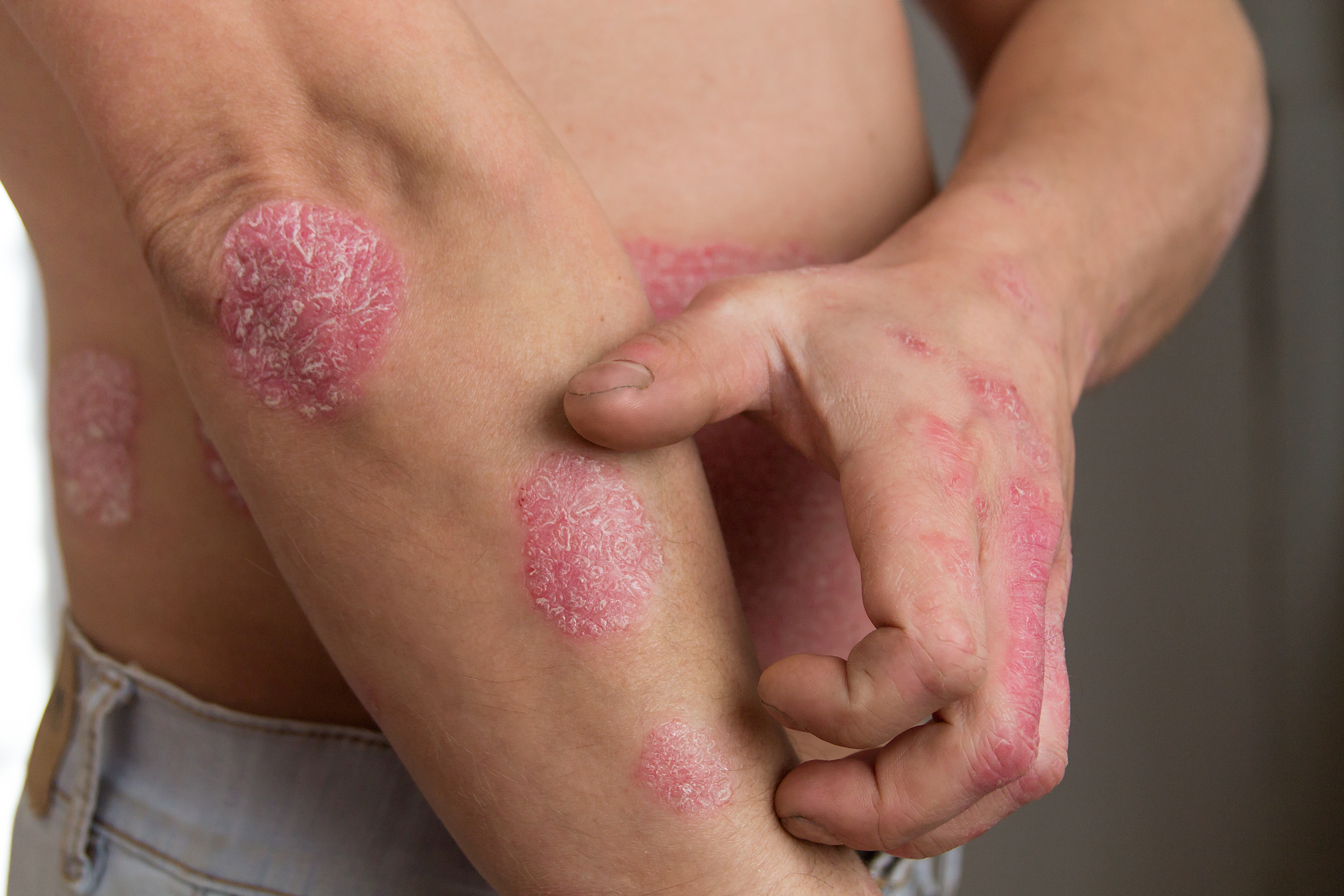 “Psoriasis is most identifiable by raised, red, and scaly patches on the skin, and commonly affects the elbows, knees, or scalp,” explains Dr. Jennifer Vickers, board-certified dermatologist at Sanova Dermatology in Austin, Texas. Although the exact cause is unknown, genetics and the immune system factor into the development and presence of disease.
“Psoriasis is most identifiable by raised, red, and scaly patches on the skin, and commonly affects the elbows, knees, or scalp,” explains Dr. Jennifer Vickers, board-certified dermatologist at Sanova Dermatology in Austin, Texas. Although the exact cause is unknown, genetics and the immune system factor into the development and presence of disease.
Psoriasis causes an excessive and shortened overturn of skin cells leading to a build-up of the upper layers of the skin and increased inflammation. This can cause the affected skin to flake, itch, burn, and sting. Patients with psoriasis also have an increased risk of associated health issues, such as psoriatic arthritis, diabetes, heart disease, and depression.
Diagnosis
To diagnose psoriasis, your doctor will take your medical history and examine your skin, scalp, and nails. “Sometimes your doctor may recommend taking a small skin sample (or biopsy) to rule out other disorders and to determine your exact type of psoriasis,” shares Dr. Vickers.
Treatment
“There are many available treatments for psoriasis, but one of the most effective treatments is a biologic medication,” Dr. Vickers suggests. Biologic drugs, or “biologics,” are administered by an injection of a protein-based medication that is genetically engineered to mimic substances that are naturally created by the immune system. These medications block some of the immunological factors that worsen inflammation.
One advantage of biologic medications is that they are often dosed less frequently than other forms of treatment. Injections can vary from weekly to every 3 months, depending on which medication is prescribed. Under the direction of a medical professional, you can learn to inject the medication at home.
“While they don’t cure psoriasis, biologics can effectively relieve the symptoms of psoriasis and can prevent the worsening of joint damage that occurs with psoriatic arthritis,” Dr. Vickers states. Improvement can require 4-6 weeks of treatment (or more), but most patients may notice improvement after the first or second injection.
How it’s Effective
Biologic treatment tackles the underlying causes of psoriasis by targeting the specific branches of the immune system that contribute to the disease. While biologic treatment is relatively safe, it does calm the immune system, thereby potentially lowering the body’s defenses. Your physician can further discuss the risks and benefits associated with the medication.
Contact Us
Do you think that you may have psoriasis, or are you interested in the option of treating your psoriasis with biologic medications? Contact us today and we will be happy to evaluate your condition and offer the best treatment options for your concern!
